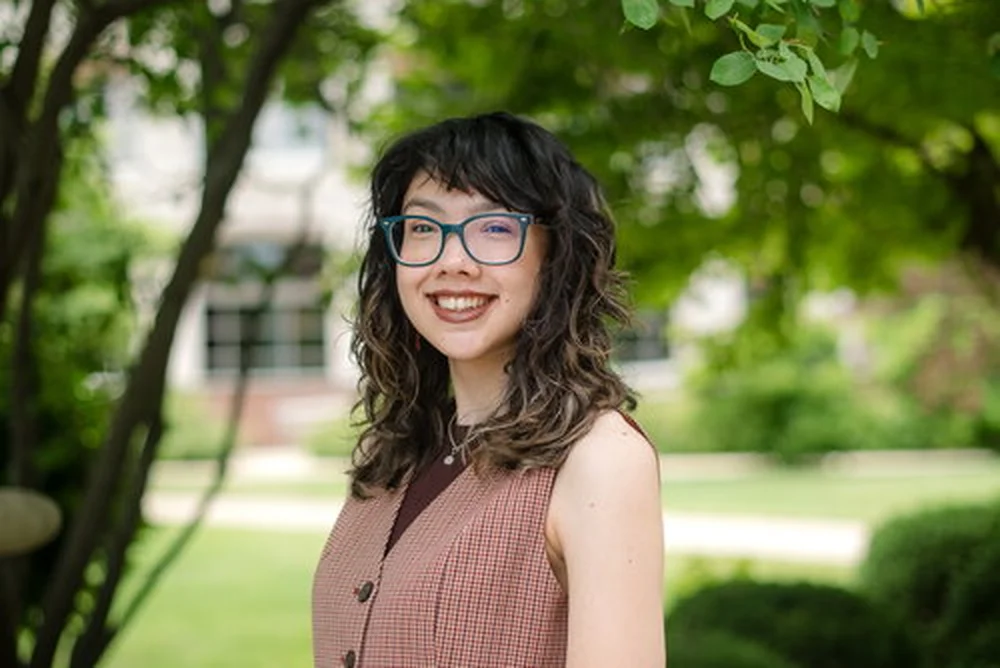
Breana 'Brea' Griffin’s transformative impact on campus and beyond has earned them the 2025 Graduate Student Leadership Award. Brea is a fourth-year Ph.D. student in the Clinical-Community Program, teaching PSYCH 239. In their spare time, they enjoy crafting, music, playing D&D, and spending time with their pup, Ella Mae.
Their graduate experience has been anything but conventional. In 2023, Brea was diagnosed with hypermobile Ehler-Danlos Syndrome (hEDS) and Postural Orthostatic Tachycardia Syndrome (POTS), conditions exacerbated by COVID-19. This flipped their graduate experience, presenting unexpected challenges that shaped their academic path and professional development. Brea describes it like pursuing a dual degree, “one to pursue my passions as a psychologist and another to “study” the ways in which my body functions and how to make that sustainable to meet my career aspirations.”
Brea struggled with the fact that visibility for disability and chronic illness in academic and professional spaces is limited, matched with difficulty finding mentors to model their journey. It was tough to imagine being a helping professional who needed help themselves.
Taking action, they created the Network for Chronically-Ill and Disabled Academic Professionals (NCDAP). Born from Brea’s “desire to connect with and bring visibility to those who accomplish quality practice, projects, and science while simultaneously navigating chronic conditions.” NCDAP features monthly meet-ups to foster networking and support across campus. These small gatherings soon evolved into a thriving online community via a Discord server, where graduate students and faculty share resources, ask questions, and build connections in a supportive, accessible space.
Brea’s advocacy has extended beyond the university’s walls. They launched the “Chronically Curious” podcast on YouTube and have presented at Social Work and Psychology conferences, bringing critical conversations about disability, chronic illness, and professional success to a wider audience.
Overall, Brea hopes “for these efforts is to foster a culture where disability and chronic illness are connected with the community’s strengths, successes, and celebrations in academic and professional settings, and that the next person who aspires to pursue a career in academia can see that it is possible, and they are not alone.”